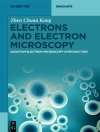Of all the great innovations and intellectual achievements of mankind there is nothing that rivals the invention of counting and discovery of the number system. The way in which this discovery led to the development of abstract higher mathematics is the least of its merits, compared to the universal f- cination that the natural numbers hold for all people. Numbers are at the roots of magic, superstition, religion and science. Numerologists can int- pret great historical and cosmicevents, predict thefuture and explain human nature. Better informed, sophisticated people may frown upon and ridicule such claims, but the number of incidents that link numbers tophysical e?ects is simply too large to ignore as mere coincidence. It is in cases like these that the more respectable number theory is substituted for numerology. Although it is recognized as the most fundamental branch of mathem- ics, thevocabulary ofnumbertheoryincludesconcepts suchasprimenumber, perfect number, amicable number, square number, triangular number, py- midal number, and even magic number, none of which sounds too scienti?c and may suggest a di?erent status for the subject. Not surprisingly, number theory remains the pastime of amateurs and professionals alike – all the way from the great Gauss down. It may be claimed that abstract number theory is more lofty than mundane science, never to be degraded into a servant of physical theory.
Table of Content
Number Theory Primer.- Periodic Table of the Elements.- Structure of Atomic Nuclei.- Elements of Cosmography.- The Periodic Laws.- Periodicity and Number Theory.- Properties of Atomic Matter.- The Grand Pattern.- The Golden Excess.- Chemical Periodicity.












